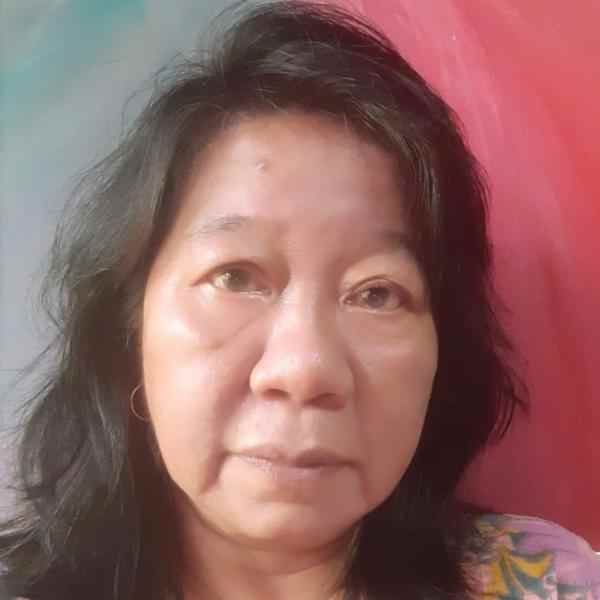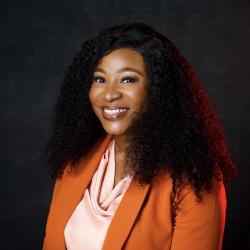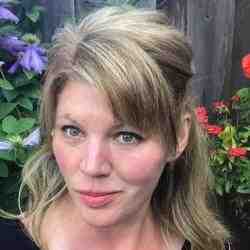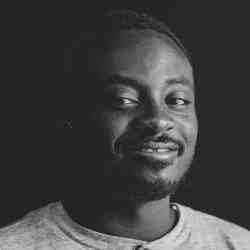Introduction
Joyce Djaelani Gordon is changing the way Indonesia sees and responds to drug abuse and addiction. She has developed a holistic model for recovery that involves addicts, their families, and friends. Joyce's approach focuses on education to overcome cultural stigmas and to prevent and care for HIV.
The New Idea
Through her extensive work with young people, reproductive health, and AIDS prevention, Joyce observed that young drug users in Indonesia represent one of the most high-risk communities for rapid transmission of HIV. She has worked hard to get to know and understand this group and the myriad problems they face both in striving to overcome their addiction and in trying to combat the spread of infectious diseases. She learned that in Indonesia drug abuse was more effectively addressed in the context of families and communities. To aid abusers in overcoming addiction, and curb the spread of HIV, Joyce has created the first integrated and holistic recovery program that includes aftercare to help young men and women who have been drug users and their families be involved in prevention, public education, and rehabilitation efforts. She creates circles of influence, while raising awareness at a national level, and helps people to see that HIV is not simply a problem of one marginal group.
The Problem
Drug abuse and addiction have become extremely serious problems in Indonesia. Official statistics (from the National Narcotics Agency) show that at least two million Indonesians are drug abusers. Professionals estimate the number to be closer to four million, and growing daily. Young people between the ages of 15 and 30, many from middle to upper middle class families, are those most affected. Because of sharing needles and practicing unsafe sex, a disproportionate number of drug abusers are infected with HIV and hepatitis C. Conservative estimates claim that 15 percent of those abusing drugs are intravenous drug users, and of those, 20 to 30 percent are HIV-positive, and 70 percent or more are infected with hepatitis C. Another group for which the correlation between drug abuse and infection is high is prison inmates. In Krobokan Prison in Bali, 35 percent of inmates have tested positive for HIV infection, and a large number are drug abusers and addicts. The magnitude of the problem and correlation is also reflected by statistics from MAP (Monitoring the AIDS Pandemic) that show that HIV levels among Indonesian inmates increased from 15 percent in 1999 to 40 percent in 2000.
The government, however, has not acknowledged the enormity of Indonesia's drug abuse problem. Once considered to be the problem of marginal communities, HIV is now infecting about 120,000 Indonesians and continues to grow at an epidemic rate. Health professionals, law enforcers, and government officials have ignored the problems faced by drug abusers, focusing attention only on efforts at supply reduction. Among professionals there is a lack of knowledge and training in how to treat addiction. Drug abuse is treated in a segmented fashion that does not look at the whole range of relevant issues. The majority of existing hospitals, clinics, and rehabilitation centers continue to offer basic detoxification programs without offering comprehensive treatment which includes recovery and aftercare. Detoxification, as carried out by many health professionals, usually means substituting prescribed medication for drugs with minimal therapy or counseling. This kind of treatment usually leads to relapse because no lasting change has been made in the addict's life. Many frustrated parents turn to traditional healers or religious boarding schools to help save their children. These facilities offer service ranging from benevolent advice based on religious teachings and herbal remedies, to immersion in cold baths at 3 a.m., to being chained for weeks to reach detoxification. Existing recovery centers in Indonesia are not dealing with or even testing for AIDS and hepatitis C and tend to turn away those addicts who are known to be infected.
The Strategy
Based on her extensive background working with youth, sexuality, and infectious diseases, Joyce has become a leader in Indonesia working to examine and overcome the current trends in drug abuse and HIV infection. Through presentations and a public information campaign geared to a variety of audiences from school children and communities to health professionals and government officials, Joyce and the team from her organization–Yayasan Harapan Kita–are working to educate the public. Joyce is a prolific writer and translator and has produced numerous articles and materials, which serve as tools targeting specific audiences.
Through Yayasan Harapan Kita, Joyce has established two residential recovery programs, one for young women and one for young men. The recovery center for young men is much larger, thus reflecting the higher proportion of male addicts. Both centers offer detoxification programs facilitated by medical practitioners, psychologists, social workers, and peer counselors. All incoming residents agree to be tested for HIV and hepatitis C, and those who are infected are accepted as part of the community. At the same time, the educational program dismantles the myths and misfortunes that surround these diseases. These programs last from six months to a year and include a minimum of five hours daily (a total of 1,500 hours) in class education. Much of the material is taught by recovered addicts. The modular programs include university-level materials to help the young people learn about addiction, both the physiological and psychological aspects, care of addicts, and tools for their own recovery. Both a six-month basic program and a six-month peer-counselor program are offered.
The centers support themselves through the fee schedule, which includes aftercare. This means that after completing the peer-counseling program, the young people are trained to become activists and reach out to others in the community who are at risk or already addicted to drugs. Many choose to stay on and help teach others, or they get involved in volunteer work, which is possible for them because a portion of the fees that they paid had been set aside to cover their expenses while volunteering. Young people at the centers operate a library information center, the hotline service, and database. They have produced a Rapid Assessment of Drug Abuse and HIV/AIDS/hepatitis C surveys. The information gathered by the young people themselves has been translated into English and has been a powerful media tool for influencing donor agencies and policy. Although Joyce has made a conscious strategy to open centers for children of the elite, she always stresses the fact that drug abuse and HIV/AIDS infection is a problem affecting all classes. For young people whose families are unable to pay the fees in full, subsidies are available, and contributions are made through the board of the Yayasan.
Another important aspect of these centers is their "open door" policy and that has served to demystify drug abuse and educate their communities. Government health officials, therapists, health professionals, teachers and student groups, religious leaders, and concerned parents are always welcome at the centers and visit the premises frequently. Regular weekly counseling and support group meetings for parents and families of the residents are also part of the program. By helping people overcome the cultural stigma in Indonesia saying, "I am the parent of a child who is a drug abuser and who is HIV positive," and by providing an atmosphere of understanding and support to deal with these issues, Joyce is creating a community of people who are knowledgeable, caring, and willing to be engaged in this struggle.
Joyce's approach is comprehensive and is set up to help young people achieve success. A one-year follow-up program for all graduates requires that the young people attend two Narcotics Anonymous meetings each week, while their parents attend weekly parent aftercare meetings. Those who have graduated from the peer counseling program often become involved in community outreach and help to start Narcotics Anonymous groups in areas where young drug abusers gather. A third recovery center has been established in Bali, and replications are planned for other urban areas. A total of 30 full-time staff members work with Joyce at Yaysan Harapan Kita, and more than 300 young people have graduated from the program.
Joyce's work as a trainer is known nationally and internationally. She has been influential with donor agencies and policymakers by providing them with much needed data and ideas for solutions. She secured a grant from the Ford Foundation to build a laboratory to carry out a variety of blood tests, including those for HIV and hepatitis C infection. Because the lab was built within a hospital in Jakarta, Joyce has been able to influence the work of medical practitioners and offer lab test services to the public.
Joyce trains not only leading activists working on AIDS prevention throughout Indonesia but also the staff of international AIDS funding programs like USAID's ASA program and UNAIDS. She knows the map of the epidemic and the various communities most at risk. She is currently creating a program for infected drug users in prisons, starting with the Kerobokan Prison in Bali, which can serve as another replicable model. Joyce has been active in networking and linking the efforts of her colleagues throughout the country, as well as guiding the course for the future.
The Person
Joyce is the youngest of four siblings born into a diplomat family in Jakarta. She recalls the family home as being an open house for students who enjoyed discussions with her liberal-minded parents. However, both of her parents died while Joyce was still a young woman, leaving her with little financial support. When Joyce entered the University of Indonesia, she supported herself making video clips, translating, and selling her own paintings. In school she chose to study psychology because friends always came to her for advice with their problems. While still a university student, she volunteered at PKBI (the national family planning association) and quickly became a counselor and member of the board. The only member who was female and still a student, Joyce proved herself to be a serial innovator, starting and managing a program called "Friends of Youth," which provided discussion forums, a hotline service for teenagers, in addition to research. Joyce also created a program called Sentra Mitra Muda (Young People's Center) to provide counseling for young people on problems they faced with their emerging sexuality both on a physical and psychological level. Joyce remains on the board at PKBI and has continued to be at the forefront in battling health issues in Indonesia.
Her professional career continued to expand when in 1993 and 1995 the Ford Foundation offered Joyce the opportunity to take part in an AIDS and reproductive health training program at a conference in the United States. As a consultant, Joyce has provided training and helped start many of the early AIDS prevention programs from Jakarta to Bali to Papua. She was one of the Indonesian delegates to the preliminary meetings and the Women's Caucus for the United Nations International Conference on Population and Development in Cairo in 1994.




